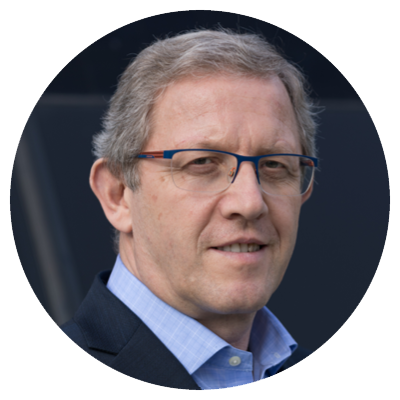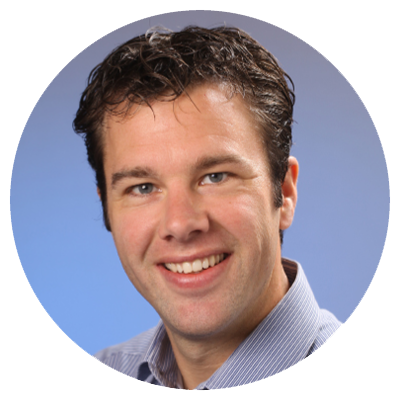Thematic break-out sessions
Session 1: Tour of The Green Village
By Arnoud van der Zee, Program Manager Energy Transition Build Environment
The Green Village is a field lab for sustainable innovation in the urban environment. A sustainable future requires innovative ideas and new applicable methods and techniques. At The Green Village, knowledge- and educational institutions, entrepreneurs, government bodies, and civilians can research, experiment, validate and demonstrate their sustainable innovations. This field lab at TU Delft Campus focuses on the urban environment where you can test on neighbourhood-, street- and building levels. The Green Village is a place where people can live, work, and learn, exempt from standard rules and regulations. With access to the innovation ecosystem of TU Delft, science is literally around the corner.
Session 2: Hydrogen and Battery storage solutions
DC and battery energy storage – key to the energy transition: by Prof. dr. ir Pavol Bauer, Head of the section DC Systems & Storage at the EEMCS Faculty at TU Delft
Energy transition in horticulture refers to the process of shifting from traditional energy sources to more sustainable and renewable energy alternatives. Here, two technologies play an important role: DC and battery energy storage. DC technology and Integrating batteries into various systems, such as grids, buildings, and electric vehicle (EV) chargers, presents several challenges. While batteries offer significant advantages in terms of energy storage and utilisation, their integration poses unique technical, economic, and environmental hurdles.
Application of hydrogen in the horticulture’s energy system: by Thijmen Vosmer, Advisor Energy Transition at Capturam
Greenhouses are a large fossil-based energy consumer and energy balance provider in the current Dutch energy system. What are the challenges and opportunities for the use of hydrogen in greenhouses while phasing out fossil energy sources and maintaining its vital role in the energy system?
Session 3: Large-scale local heat storage
Subsurface heat storage for greenhouses at various temperature levels: by Dr. ir. Martin Bloemendal, Assistant Professor of Underground Thermal Energy Storage
Greenhouses have a varying demand for heating and cooling, depending on the type of crops/products that are grown. In any case, greenhouses have a need for diurnal, weekly and/or seasonal thermal energy storage to match renewable sources with demand. In Dutch greenhouses, thermal energy storage is usually done via buffer tanks or subsurface storage using Aquifer Thermal Energy Storage (ATES). In this presentation, Martin Bloemendal will discuss the latest developments and potential of subsurface heat storage at various temperature levels and for short and long storage cycles.
Phase Changing materials for agriculture: by Bert van Dorp, Technical Director at Orange Climate Agri
Session 4: Integration with external energy infrastructure
From predict and act to explore and adapt: Embracing uncertainty in the energy transition: by Dr. ir. Igor Nikolic, Associate Professor participatory multi-modelling at TU Delft
The energy transition and its specific impact on the horticultural sector are deeply uncertain. Not only is the value of certain parameters uncertain, e.g. what will the price of oil be in 2035, but also, is that price even relevant? At TUD, together with industrial and societal partners, we are developing robust adaptive investment methods that can consider vast numbers of future scenarios and evaluate them using co-created multi-models. This way, we identify investment pathways that can handle the largest number of possible futures and allow us to minimise the regret of our decisions.
ICT-enabled electrification and energy integration of greenhouse horticulture with external systems by: Tarek Alskaif, Assistant Professor of Energy Informatics at Wageningen University
Greenhouse horticulture is an important player in the energy transition of the Dutch agriculture sector. The electrification and energy integration of greenhouses with external systems will create value for different stakeholders. However, greenhouses are not stand-alone, and their integration requires solving technical and non-technical challenges. Emerging ICT, such as AI and Digital Twins, can make use of the large data generated in greenhouses and other external systems to solve those challenges, considering the requirements and constraints of the different stakeholders, technologies and systems involved.
Session 5: Resource efficient crop-management
Climate control and energy use optimisation: by Prof. dr. ir. Tamas Keviczky, Professor at Delft Center for Systems and Control at TU Delft
In order to support making the most economical and energy-saving decisions about greenhouse operations and setpoints automatically, it makes sense to combine forecasts with historical data and dynamic models of energy flows, indoor climate, and crop behaviour based on first principles. How this can be done in an efficient and tractable way amidst model and forecasting uncertainties, external disturbances and equipment faults while maintaining the right level of interaction with the growers presents several technical challenges. Open system architectures, digital twin test environments, and databases for research and development are proposed to foster interoperable and portable innovation at a level that all stakeholders can benefit from.
Diffuse light and its impact on climate control, energy use, and crop yield: by Willem Kesteloo, CEO PAR+ at FOTONIQ
Daylight significantly impacts the (resource) efficiency of the greenhouse. By optimising the distribution of daylight within the greenhouse through a diffuser, the grower can increase the overall photosynthesis of their crops. This can benefit the resource efficiency or crop yield, depending on the cultivation strategy of the grower. To utilise the potential of a more diffuse light distribution, the right measuring is required as input for the right cultivation strategy from the grower. In accordance with the ‘plant empowerment’ philosophy, a data-driven growing philosophy to grow more sustainable and profitable by keeping the three plant balances in equilibrium (energy, water, and assimilates).
AgTech Congres 2023
 Registration website for AgTech Congres 2023
Registration website for AgTech Congres 2023Ramona Filoncorporate-innovation@tudelft.nl
Ramona Filoncorporate-innovation@tudelft.nlhttps://www.aanmelder.nl/agtech
2023-09-12
2023-09-12
OfflineEventAttendanceMode
EventScheduled
AgTech Congres 2023AgTech Congres 20230.00EUROnlineOnly2019-01-01T00:00:00Z
The Green Village - main eventThe Green Village - main eventVan den Broekweg 4 2628 CR Delft Netherlands









